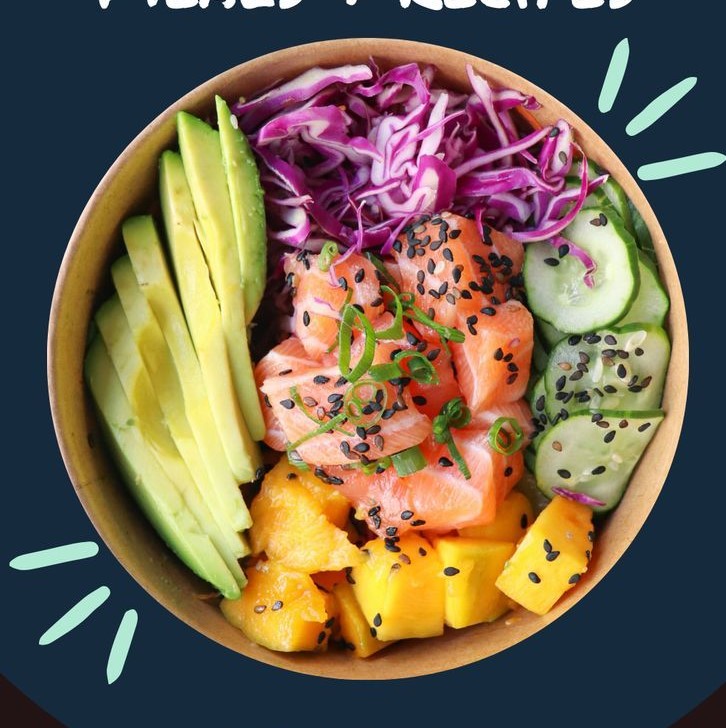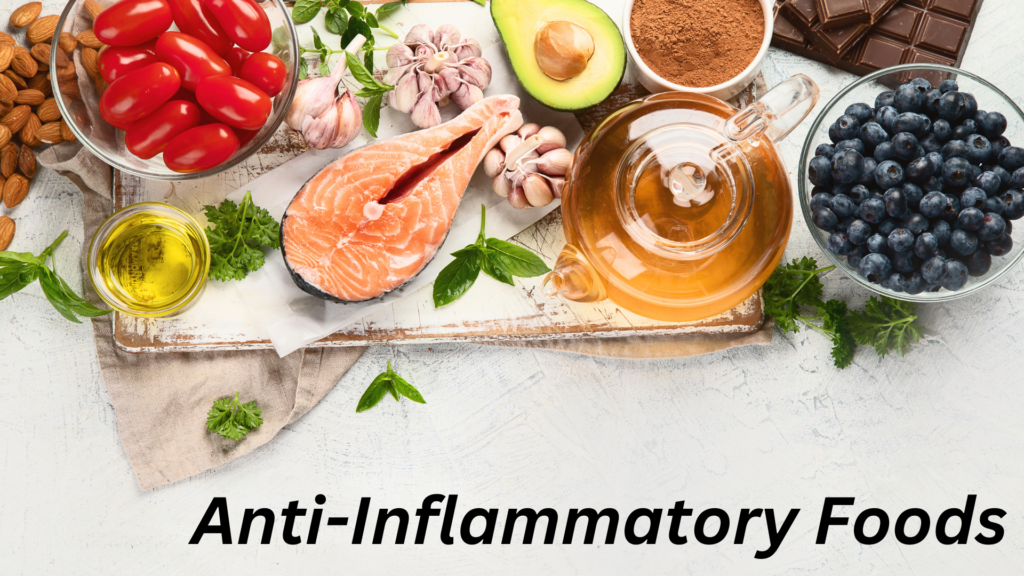INTRODUCTION
You can lower inflammation over time by eating foods rich in nutrients. Berries, fatty fish, nuts, leafy greens, oatmeal, and olive oil can all be part of an anti inflammatory diet. But it’s best to include a variety of fruits, vegetables, and whole grains.
Anti-Inflammatory Diet
Your immune system becomes activated when your body recognizes anything that is foreign such as an invading microbe, plant pollen, or chemical. This often triggers a process called inflammation. Intermittent problems of inflammation directed at truly threatening invaders protect your health.

Foods That Cause Inflammation
Try to avoid or limit these foods as much as possible:
- Refined carbohydrates, such as white bread and pastries
- French fries and other fried foods
- Soda and other sugar-sweetened beverages
- Red meat (burgers, steaks) and processed meat (hot dogs, sausage)
- Margarine, shortening, and lard
Top Anti-Inflammatory Foods
Foods like fruits, vegetables, and spices contain anti-inflammatory compounds and may help reduce inflammation. The most anti-inflammatory foods may include:
- berries
- fatty fish
- broccoli
- avocados
- green tea
- peppers
- mushrooms
- grapes
- turmeric
- extra virgin olive oil
- dark chocolate and cocoa
- tomatoes
- cherries

What is Inflammation?
If you’ve ever cut your finger, injured a toe or had a throat infection, you have likely experienced at least some of the four signs of inflammation: redness, swelling, pain and heat.
Acute inflammation is your body’s natural response to illness, injury, infection and usually resolves on its own.
But there is another kind of inflammation. This kind affects the whole body and this is called systemic. Systemic inflammation can become chronic; it can persist for months, or even years.
Different Cooking Methods
- When you want to reduce inflammation, baking, steaming or fast stir-frying are preferable to deep frying or grilling.
- Cooking meat, especially red meat, on the grill creates compounds associated with cancer. Microwaving cooks and heats by activating water molecules, and it is actually healthier than frying or grilling at high heat.
- Benefit of healthy items like fish and vegetables can be reversed if you are not careful with sauces and dressings. Many of these condiments and extras are high in inflammatory ingredients such as sugar and trans fat as well as sodium.
The Health Risks Of Inflammatory Foods
Some of the foods that have been associated with an increased risk for chronic diseases such as type 2 diabetes and heart disease are also associated with excess inflammation. It’s not surprising, since inflammation is an important underlying mechanism for the development of these diseases.
Healthy Fats
A diet rich in these foods can enhance mental clarity and emotional flaxibility. Research suggests that omega-3 fatty acids found in fish such as salmon or walnuts play an important role in brain health by reducing inflammatory responses linked to madness. This not only promote sharper thinking but may also raise mood stabilizers. Potentially offering relief from anxiety and depression symptoms. Embracing an anti-inflammatory lifestyle isn’t ONLY about what you eat; it’s about nourishing every aspect of your life and reconnecting with the life that maximum health brings.

DASH Diet
The DASH (Dietary Approaches to Stop Hypertension) diet is more than just a plan for lowering blood pressure. It’s a comprehensive approach to nutrition that points out an abundance of anti-inflammatory foods, which play a vital role in promoting overall health. Rich in fruits, vegetables, whole grains, and lean proteins, the DASH diet tackled the power of antioxidants found in these foods to combat oxidative stress and inflammation throughout the body. By incorporating nutrient-dense options like berries, leafy greens, nuts, and fatty fish, individuals not only manage their blood pressure but can also reduce risks associated with chronic diseases such as heart disease and diabetes.
FAQs
1: What are anti-inflammatory foods?
Anti-inflammatory foods are nutrient-rich items that help reduce inflammation in the body. They include fruits, vegetables, whole grains, healthy fats, nuts, and fatty fish.
2: How do anti-inflammatory foods benefit my health?
These foods can lower the risk of chronic diseases such as heart disease and diabetes, improve gut health, enhance immune function, and support overall well-being.
3: Which fruits are considered anti-inflammatory?
Berries (like blueberries and strawberries), cherries, oranges, and apples are all great choices due to their high antioxidant content and vitamins.
Conclusion
Adopting an anti-inflammatory diet goes beyond basic consumption. It encourages mindfulness around food choices while bringing up a deeper connection to what we eat. Think of it as more than just nutrition; it’s an ongoing journey towards liely health where each meal becomes an opportunity to strengthen your body from within.
